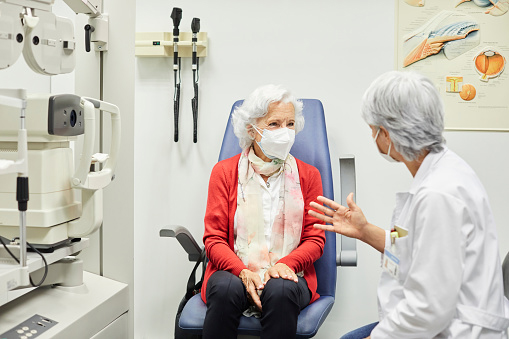 |
| Many patients with AMD aren't being equipped with knowledge about the disease from their clinician, study finds. Photo:Getty Images. |
When managing vision-threatening conditions such as age-related macular degeneration (AMD), the strength of communication between physician and patient can make a big difference in motivation to undergo therapy. Recent evidence, however, suggests there is over- and undertreatment, underdiagnosis and insufficient information provision in AMD care. The authors of a study on shared decision-making between patient and physician noted that improvements in this approach can enhance care.
To learn about patient and physician views on shared decision-making, the researchers conducted semi-structured interviews with AMD patients and providers. They found that there are major barriers to making shared decisions. These included limited time between diagnosis and initial treatment, time constraints during the patient visit and the large quantities of information to explain. Many patients said they were unaware that anti-VEGF therapy is a long-term and invasive experience.
Patients also identified a greater need for empathetic, person-centered communication. Too often, the communication they receive happens in an “assembly-line” fashion, with multiple people in the practice delivering elements of the information, the researchers mentioned. “An environment in which health professionals are able to listen to patients and respect their concerns is where patients feel comfortable participating in shared decision-making,” the researchers noted in their paper on the study.
Doctors should make more of an effort to overcome existing barriers to shared decision-making, the authors advised. This involves monitoring whether information provided about disease, treatment and prognosis has been adequately understood by patients with AMD. Furthermore, they wrote that instituting use of nurse practitioners for AMD care would improve patient education, help answer questions, provide additional information and help overcome time constraints.
Scheffer M, Menting J, Roodbeen R, et al. Patients and health professionals views on shared decision-making in age-related macular degeneration care: a qualitative study. College Optom. 2022;00:1-8. |


